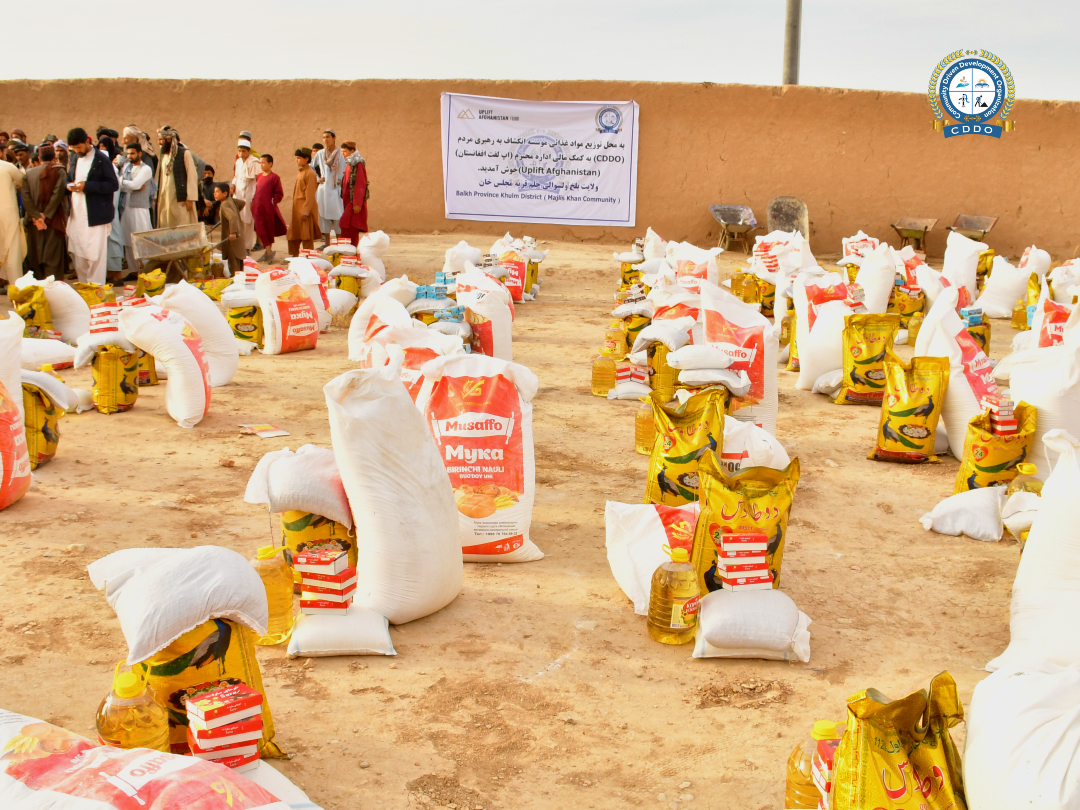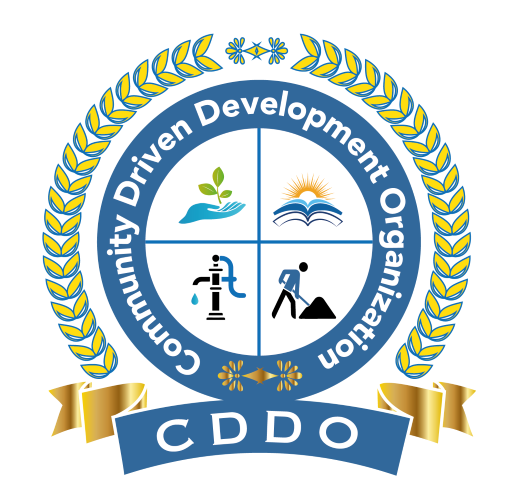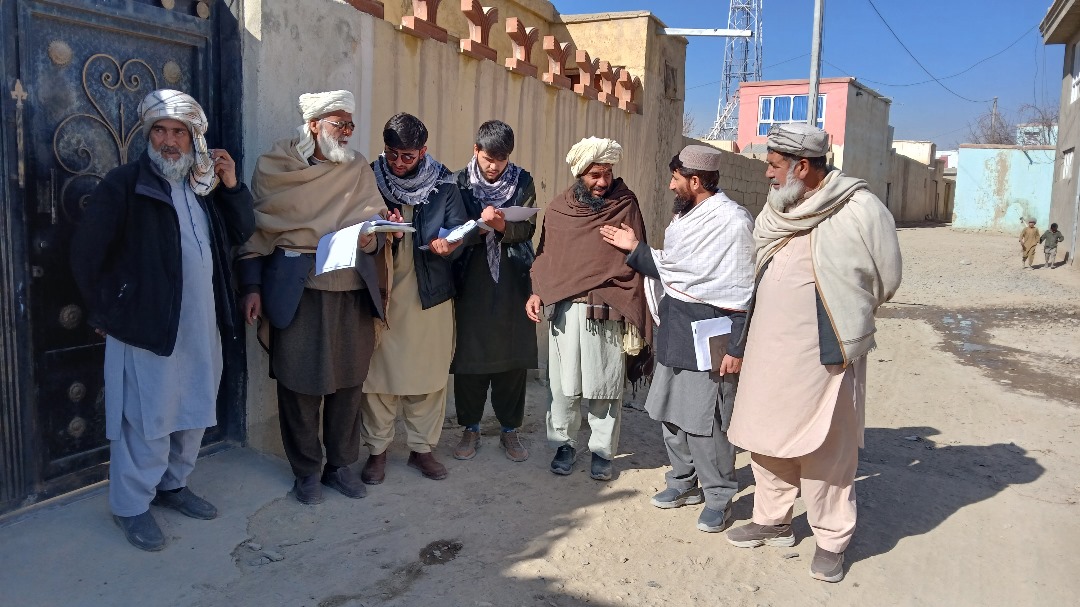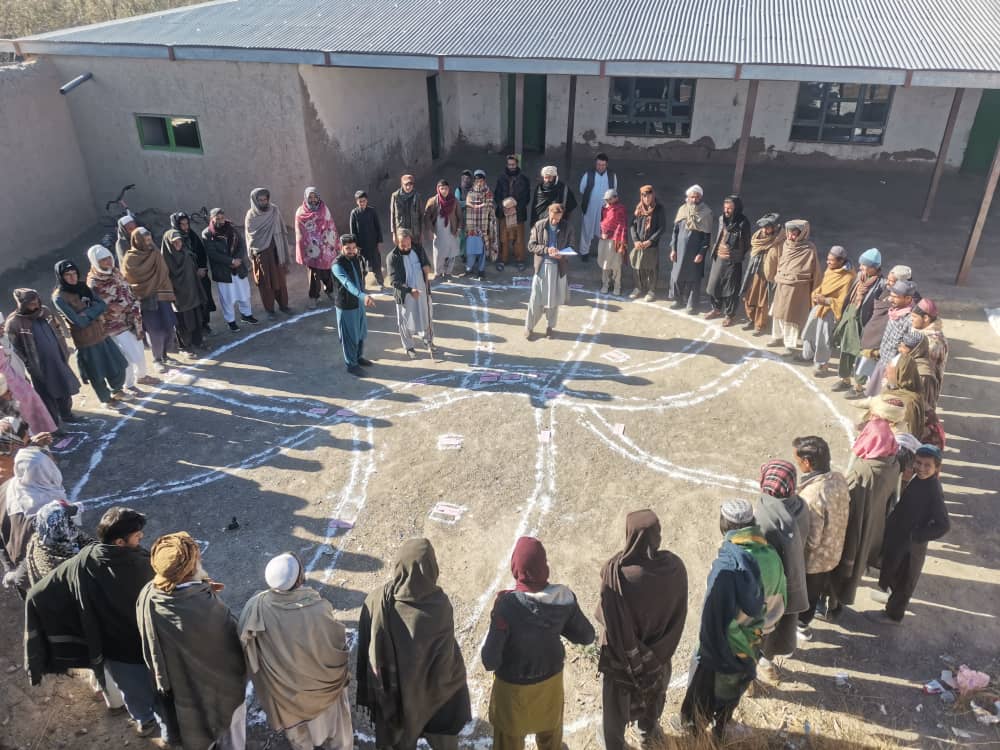Recent Posts
Recent activities that have been undertaken or are currently being carried out by the CDDO, with the help of their partners.
77 Development Projects Inaugurated and Handed Over for Public Use in Khost Province
A total of 77 development projects were inaugurated and officially handed over for public use in 65 villages of Nadershah Kot District, Khost Province. The initiatives were implemented by the Community-Driven Development Organization (CDDO) with the financial support of the United Nations Office for Project Services (UNOPS)...
Food Pakages distribution
Today, Wednesday (21/05/2025), the provincial office of the CDDO Foundation in Khost province distributed food packages to 90 families in three villages of the Nader Shah Kot district as part of the fourth phase of the Social Support and Livelihood Program.
Designing the resource map
Designing the resource map of the rural area of Dumradakhil CRG, Zermatt District, Paktia Province and following the second forum.
A canal in the irrigation sector
In remote areas where people have less access to basic facilities. With the construction of canals, approximately 60 acres of land will be irrigated.
OUR Activities
The CDDO operates in several rural communities, primarily in underserved areas where access to basic resources is limited. Their key activities include:


Direct Beneficiaries
Indirect Beneficiaries
Projects
Total
CDDO Services
We delivers lifesaving relief to the displaced communities with cash and in-kind assistance, shelters, and water and sanitation infrastructure, whilst contributing to long term recovery and development by providing education and skills training, investing in agriculture and livelihoods, and strengthening local.
Food Distribution
Regularly distributes nutritious food packages to families in need.Partners with local farmers to source food, promoting local agriculture. Organizes community meals to foster social cohesion and reduce food waste.
Volunteer Services
Minim veniam, quis nostrud exercitation ullamco laboris nisi ut aliquip exa
Awareness Raising Activities
Duis aute irure dolor in reprehenderit in voluptate velit esse cillum
Educational Support
Supplies schools with books, learning materials, and technology resources. Offers after-school tutoring programs to enhance learning outcomes. Facilitates workshops for parents on supporting their children's education
Vocational Training
Offers skill development courses in trades such as carpentry, sewing, and agriculture. Provides entrepreneurship training and support for local business initiatives. Establishes mentorship programs to connect trainees with experienced professionals.
Environmental Awareness Campaigns
Conducts educational campaigns on conservation and environmental protection. Organizes community clean-up events and tree planting initiatives. Promotes the use of renewable resources and sustainable practices.
Why CDDO?
Organizaions and Individuals often choose to chose to CDDO due to our commitment to transparency, which builds trust through clear communication about fund allocation. Our focused programs demonstrate measurable impact, allowing donors to see the tangible effects of their contributions. We actively involve the community in our initiatives, fostering collaboration and a sense of ownership. With years of experience in the field, our dedicated team brings a wealth of knowledge and expertise, inspiring confidence in our mission. Additionally, donations may be tax-deductible, providing financial benefits to supporters. Many donors feel a personal connection to our cause, and we strive to recognize and appreciate their contributions, creating a strong sense of community.

Impactful Programs
We focus on specific, measurable outcomes in our projects, allowing donors to see the tangible effects of their generosity.
Community Engagement
CDDO actively involves the local community in its initiatives, fostering a sense of ownership and collaboration.
Transparency and Trust
CDDO demonstrates a commitment to transparency in how funds are allocated, ensuring donors know exactly where their contributions go.
Recognition and Appreciation
We value our donors and strive to recognize their contributions, creating a sense of community and partnership.
Our Projects
CDDO through the network of more than 3,000 former CCNNP, NSP, MCCG, CASA-CSP and REACH PIU personnel is connected to over 36,000 CDCs in all 34 provinces
FAQs
Frequently asked questions
Have a question? Check out the FAQ
If you have a question, be sure to check out our FAQ section for quick answers. It's a great resource to find the information you need!
What is the mission of your organization?
The purpose of our organization is to serve multiple causes and community needs, such as education, health, the arts, the environment, food distribution, water construction, irrigation, and school construction..
Who are your partners?
Our partners include UNOPS, UNDP, and Uplift-Afghanistan, among others..
What challenges do you face in your Program implimentation?
Eleifend mi in nulla posuere sollicitudin aliquam ultrices sagittis orci. Faucibus pulvinar elementum integer enim. Sem nulla pharetra diam sit amet nisl suscipit. Rutrum tellus pellentesque eu tincidunt. Lectus urna duis convallis convallis tellus. Urna molestie at elementum eu facilisis sed odio morbi quis
Can you share success stories from your Programe?
Dolor sit amet consectetur adipiscing elit pellentesque habitant morbi. Id interdum velit laoreet id donec ultrices. Fringilla phasellus faucibus scelerisque eleifend donec pretium. Est pellentesque elit ullamcorper dignissim. Mauris ultrices eros in cursus turpis massa tincidunt dui.
What types of programs do you implement with your partners?
Molestie a iaculis at erat pellentesque adipiscing commodo. Dignissim suspendisse in est ante in. Nunc vel risus commodo viverra maecenas accumsan. Sit amet nisl suscipit adipiscing bibendum est. Purus gravida quis blandit turpis cursus in
How do you measure the impact of your programs?
Enim ea facilis quaerat voluptas quidem et dolorem. Quis et consequatur non sed in suscipit sequi. Distinctio ipsam dolore et.
Our Partners
Our partnership focuses on creating inclusive programs that address the unique challenges faced by marginalized populations



















